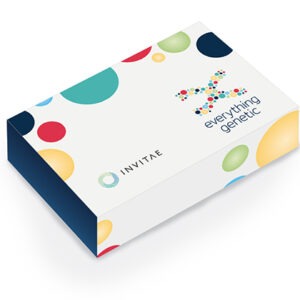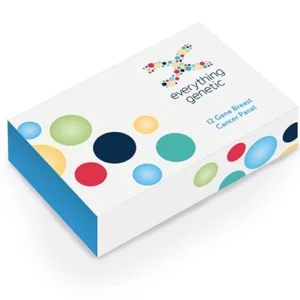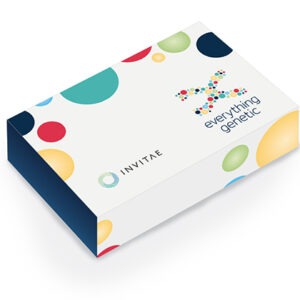Description
Genetic risk test associated with colorectal cancer
This test analyses 20 genes that are associated with colorectal cancer, and the option of a further 10 genes that have preliminary evidence of an association with this cancer type. It is designed for early detection to help guide the right treatment, reduce the risk of recurrence and increase mortality rate from colorectal cancer.
It is suitable for those who have several family members with colorectal and other cancers.
Why choose the Invitae Colorectal Cancer Panel?
- Make vital and informed decisions about screening or treatments such as earlier or more frequent colonoscopies.
- Provide more definitive answers if previous genetic testing for hereditary colorectal cancer was negative or inconclusive.
- Identify inherited mutations to ensure that close family members are screened from an early age.
- Identify pathogenic mutations to prevent progression or recurrence.





